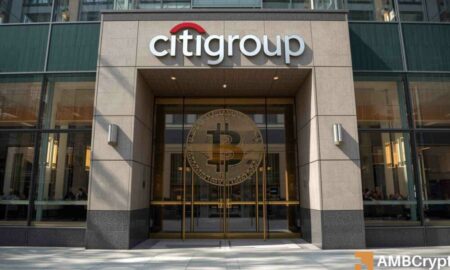Understanding the Decline of Retail Bitcoin Holders Amidst Record Highs
Despite Bitcoin (BTC) surging to an all-time high of $125,725, a striking trend has emerged: the number of retail Bitcoin holders is declining. Recent analysis reveals that addresses holding fewer than 100 BTC have plummeted to cycle lows. This surprising dichotomy raises questions about retail investor participation in a market seemingly propelled by larger players. Understanding this shift may help investors and market watchers navigate the complexities of Bitcoin’s evolving landscape.
Retail Participation Dwindles: A New Market Dynamic
The cryptocurrency market often witnesses the ebb and flow of retail participation, but the current cycle showcases an unusual trend. Retail traders are showing a lack of enthusiasm, even amid record-breaking price levels. Data from CryptoQuant analyst Darkfost indicates that the supply of Bitcoin held by retail investors has continuously fallen since the last bear market, contrasting sharply with the profits realized in this upcycle. This raises a critical question: Are retail traders simply uninterested in the current market, or are they priced out due to high BTC valuations?
Whales and Institutions Take the Lead
The decline in retail activity has allowed high-net-worth individuals and institutional investors to dominate the Bitcoin market. Retail traders are confronted with escalating prices, making it increasingly challenging to acquire substantial amounts of Bitcoin. As a result, entities holding between 100 and 1,000 BTC have become the primary drivers of this cycle, adding over 10,000 BTC daily. For example, recent data reveals that addresses categorized as "sharks" have contributed over 124,000 BTC in just one day, underscoring the substantial demand from wealthier investors.
Institutional Investment Dynamics
A notable shift in market behavior has been shaped by the emergence of Bitcoin Exchange-Traded Funds (ETFs) in early 2024. These institutional vehicles have opened new avenues for investment, allowing institutions to accumulate Bitcoin with relative ease. Current statistics indicate that institutions collectively own approximately 620,950 BTC, valued at around $76.9 billion, primarily through these ETFs. This change marks a significant transition in Bitcoin’s ownership structure, moving it away from retail and more towards institutional accumulation, which brings with it different market characteristics.
Record Inflows Indicate a Steady Shift
The inflow of capital into Bitcoin spot ETFs has further accentuated this institutional trend, with a recent net weekly inflow of $3.24 billion recorded—the second-highest weekly inflow in history. This robust inflow signals a clear departure from the previous reliance on retail investors. In this cycle, as large entities take up more space in the market, retail traders find themselves sidelined, effectively unable to keep pace with the soaring prices and institutional breadth.
Implications for Bitcoin’s Future
What do these dynamics mean for Bitcoin’s trajectory? The continued growth of Bitcoin as a speculative asset has constrained retail investors’ influence. Larger holders, including whales and institutions, have increasingly favored long-term strategies, supplanting the more speculative tendencies of retail activity. As institutional demand for Bitcoin remains strong, it positions BTC for further price growth, elevating its potential to retest and surpass previous all-time highs.
Conclusion: A New Era for Bitcoin Investment
The declining number of retail Bitcoin holders amid record highs might seem concerning at first glance. However, this trend could indicate a maturation of the Bitcoin market, where large entities exert greater influence over price movements. For investors and observers, understanding this shift is essential in navigating the future landscape of Bitcoin and cryptocurrency investment. As institutional interest continues to drive the market, the underlying fundamentals of Bitcoin may become more robust, potentially securing its place as a valuable asset in the broader financial ecosystem.
















